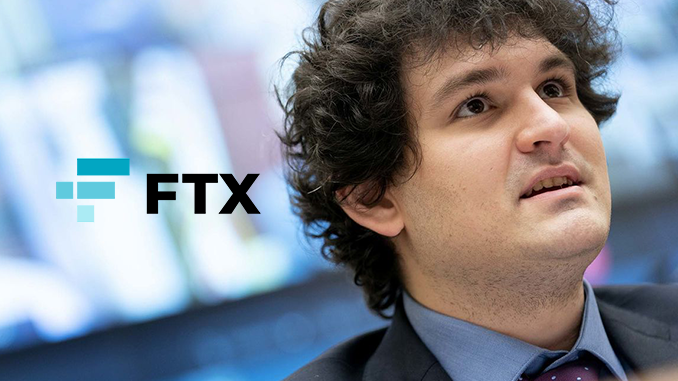
The crypto industry has been rocked by bankruptcies for weeks, with examples like Celsius leaving customers trembling for their deposits. Sam Bankman-Fried, founder of FTX, warns that crypto exchanges are also collapsing.
It all seems to have started with the crash at Terra (LUNA) and the algorithm-linked stablecoin UST in May. When at least 40 billion US dollars of invested capital virtually evaporated into thin air there within a few days, domino effects were set in motion. Crypto companies such as Celsius, BlockFi and Three Arrow Capitals (3AC) that were considered successful and trustworthy are now struggling to survive and are unable to pay out customer funds or settle loans. Hundreds of thousands of private investors are reeling from the consequences, fearing for a combined total of tens of billions of dollars they entrusted to platforms. In this situation, crypto billionaire Sam Bankman-Fried explicitly warned in an interview with the business magazine Forbes that the conflagration is far from extinguished. Some crypto exchanges are “secretly bankrupt,” Bankman-Fried says, without naming specific names.
Bankman-Fried, 30, founded the crypto exchange FTX, which is one of the five largest in the world. That made him a billionaire, and Bankman-Fried’s reputation isn’t just because he donates parts of his fortune to charity. Bankman-Fried usually speaks plainly and FTX has so far been spared scandals or hacks. So it’s worth listening when the physics graduate paints a picture of the crypto industry.
“There are companies out there that have gone too far,” Bankman-Fried says, “and it’s virtually impossible to catch them.” The reasons for the demise of crypto companies, he says, are many, ranging from substantial balance sheet problems to difficulties with regulators and government agencies to business models that don’t carry the day. As long as the overall crypto market seemed to know only the upward direction, these black sheep hardly stood out and were able to whitewash their difficulties, Bankman-Fried says. He differentiates, however, and in fact FTX has already gotten involved several times to financially rescue companies that are believed to be undergoing redevelopment.
Looking at end users, Bankman-Fried points to more than 600 crypto exchanges worldwide that often offer risky margin trading in an unregulated manner as well, taking unsecured risks. In addition, there are inadequate security measures at smaller crypto exchanges, which repeatedly lead to hacks with losses in the millions. FTX, on the other hand, is in a stable position and can therefore look back on ten quarters in a row in which profits were generated. FTX’s biggest rival Coinbase, on the other hand, had to report a loss of $420 million in Q1 2022 alone, and Coinbase’s stock has plummeted.
Bankman-Fried also discusses Tether (USDT), the world’s most important stablecoin with more than $60 billion in market capitalization. Tether has repeatedly come under criticism because its promised 1:1 coverage by dollar reserves was not true in detail, and reserves in risk-laden asset classes also back USDT. If Tether loses its peg to the U.S. dollar, the crypto market will experience a super-GAU, critics fear. “I think these very pessimistic outlooks for Tether are wrong,” Bankman-Fried says, adding, “I don’t think there’s any evidence of that (liquidity problems with Tether).”
Bottom line: risk management for crypto investors more important than ever
Of course, Bankman-Fried is also indirectly advertising his own crypto exchange FTX with his statements, and of course the idea behind his investments in struggling companies is that they can pay back in the medium term. But you should still not throw his warnings to the wind. For years, we have also been recommending only a few crypto exchanges like Binance or FTX, which have reached a critical size for fair pricing, well thought-out security concepts and transparency towards their customers. If you are currently still storing funds with smaller providers, you should either withdraw them there or at least reconsider the risks yourself. Only very few providers can afford an SAFU program such as Binance, which protects customer funds in emergencies. It is advisable, not only in times of crisis, to always back up Bitcoin (BTC) and Co. on a hardware wallet when it is not needed for trading, payments or other purposes. This way you keep full control over your Bitcoin (BTC) and Altcoins and do not have to fear for your assets if the wave of bankruptcies in the crypto industry continues as predicted by Bankman-Fried.

Leave a Reply